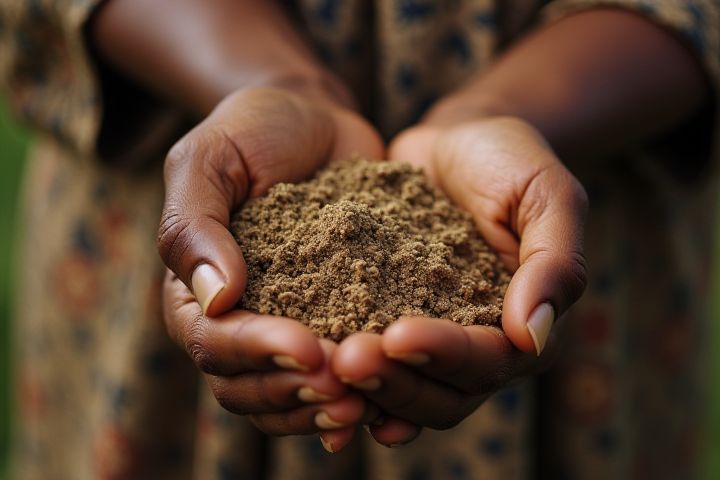
Nigeria is home to a rich tapestry of religious beliefs, primarily comprising Islam and Christianity, which together influence the country's cultural landscape. The northern region predominantly practices Islam, with major cities such as Kano and Sokoto serving as centers of Islamic learning and worship. In contrast, southern Nigeria is largely associated with Christianity, boasting numerous denominations, including Pentecostal, Catholic, and Anglican churches. Indigenous beliefs also play a significant role, particularly among ethnic groups such as the Yoruba, Igbo, and Hausa, who incorporate traditional practices into their spiritual lives. Understanding the dynamic interplay between these religions is vital for grasping Nigeria's sociopolitical framework and community interactions.
Diverse religious landscape
Nigeria boasts a diverse religious landscape, predominantly influenced by Islam, Christianity, and traditional African beliefs. Approximately 50% of the population practices Islam, primarily in the northern regions, while Christianity, particularly in the southern and central areas, encompasses roughly 48% of the populace. This rich tapestry of faith often intertwines with cultural traditions, resulting in unique expressions of worship, festivals, and community life. Understanding this religious plurality is essential for appreciating the complex social dynamics and interfaith interactions within Nigeria.
Predominantly Christianity and Islam
Nigeria is a religiously diverse nation, with Christianity and Islam being the two predominant faiths. Approximately 50% of the population practices Islam, primarily in the northern regions, while around 40% identify as Christians, mainly in the southern and central areas. This religious landscape contributes to a rich cultural tapestry, influencing various aspects of life, from festivals and rituals to politics and community dynamics. Your understanding of Nigeria's social structure is incomplete without acknowledging the intricate interplay between these two major religions.
Significant indigenous beliefs
Religion in Nigeria is characterized by a rich tapestry of indigenous beliefs, which coexist alongside major world religions like Islam and Christianity. These indigenous practices often emphasize a deep connection with ancestral spirits, nature, and the community's cultural heritage. Rituals, festivals, and oral traditions play a crucial role in preserving these beliefs, where deities and ancestors are invoked for guidance and protection. You may find that local religions vary widely across the diverse ethnic groups, illustrating Nigeria's complex spiritual landscape.
Religious pluralism
Nigeria exemplifies religious pluralism, predominantly exhibiting a diverse tapestry of beliefs that include Islam, Christianity, and indigenous faiths. Approximately 50% of the population practices Islam, mainly in the northern regions, while Christianity is prevalent in the south, where denominations range from Catholicism to Pentecostalism. Traditional African religions still play a significant role, often interwoven with the practices of both major religions, creating a unique cultural and spiritual landscape. You can observe vibrant festivals and community rituals reflecting this rich interreligious dialogue, emphasizing coexistence and cultural heritage within the nation.
Freedom of religion
Nigeria is home to a rich tapestry of religious beliefs, predominantly comprising Islam and Christianity, alongside indigenous African spiritual practices. Freedom of religion is enshrined in Nigeria's Constitution, allowing practitioners to express their faith openly and participate in religious rituals without fear of discrimination. The country's vibrant religious landscape, while fostering cultural diversity, can also be a source of tension in regions where sectarian divides exist. Your engagement with various faith communities in Nigeria can enhance mutual understanding and promote peaceful coexistence among its diverse population.
Religious conflicts and tensions
Nigeria is characterized by a complex interplay of religious beliefs, predominantly Islam and Christianity, which has led to significant religious conflicts and tensions throughout its history. The northern regions tend to have a higher Muslim population, while southern areas are primarily Christian, exacerbating ethnic and sectarian rivalries. Frequent clashes, often rooted in political disputes, economic inequalities, and historical grievances, manifest in violence, displacement, and loss of life. Understanding the socio-political context behind these tensions is crucial for fostering dialogue and promoting peaceful coexistence among Nigeria's diverse religious communities.
Influence on politics
Religion in Nigeria plays a significant role in shaping the country's political landscape, often driving electoral decisions and policy-making. The two dominant faiths, Islam and Christianity, frequently create a complex interplay, where religious affiliations influence voter behavior and party loyalty. Political leaders often leverage religious sentiments to gain support, resulting in a blend of religious ideology and governance. Understanding this dynamic is crucial for comprehending Nigeria's socio-political environment, as it highlights how faith can impact national unity and conflict.
Role in social services
In Nigeria, religion plays a significant role in providing social services, often filling gaps left by government initiatives. Faith-based organizations, including churches and mosques, actively engage in delivering healthcare, education, and poverty alleviation programs, impacting millions of lives. Many religious institutions operate schools and hospitals, promoting access to quality education and essential medical services in underserved communities. By mobilizing volunteers and resources, these organizations foster community solidarity and enhance social welfare, reflecting the deep intertwining of faith and social responsibility in Nigerian society.
Interfaith dialogue efforts
Nigeria is characterized by a rich tapestry of religious diversity, with Islam and Christianity being the two predominant faiths. Interfaith dialogue efforts across the nation aim to foster understanding, tolerance, and collaboration among various religious communities, addressing issues like extremism and social discord. Initiatives often involve community leaders, grassroots organizations, and government entities working together to promote peace and coexistence. By engaging in these dialogues, you contribute to building a more harmonious society that respects and values diverse beliefs.
Pilgrimage practices
In Nigeria, pilgrimage practices are integral to both Islam and Christianity, reflecting deep-rooted spiritual beliefs and cultural heritage. Muslims participate in the Hajj to Mecca, which is one of the Five Pillars of Islam, emphasizing the importance of faith and community. Similarly, Christians often engage in pilgrimages to holy sites such as the National Shrine of Our Lady of Nigeria, fostering a sense of devotion and connection to their faith. These pilgrimage experiences not only enhance individual spiritual growth but also strengthen communal ties, showcasing Nigeria's diverse religious landscape.
